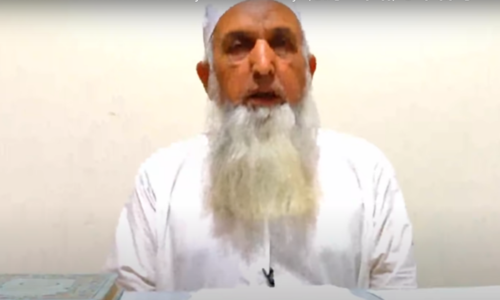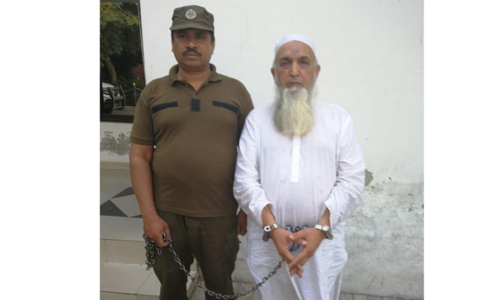THERE is a compelling documentary on Netflix titled The Keepers. It begins with an unsolved murder mystery, a theme which has become rather popular for documentaries on streaming websites and elsewhere. The murder is of a nun back in 1969, who taught at a high school in Baltimore, US. After her disappearance one night, her body was found two months later but the perpetrators were never identified or found.
But within one episode, it is clear the series, and the story it was following, was so much bigger than the murder of a young nun, who taught English at a Catholic school. By the time the viewer clicks on the second episode it turns into a story of abuse carried out at the school by a priest; as the survivors tell of their experiences; it turns out that some of them had confided in the nun and there is circumstantial evidence to suggest that she wanted to protect the girls, which may have led to her unexplained disappearance and death. By then the nun, despite the documentary returning to her time and again, is a side story. The main focus are the survivors and their trauma, and their later efforts in the 1990s to sue the church for the abuse.
The series touches upon the larger context in which the abuse took place — Baltimore was a deeply Catholic city and the school was run by the diocese. Securing admission to it was no small matter, especially for the blue-collar families, who aspired to send their daughters there. The clergy running the school were a figure of authority in more ways than one. A sibling of one of the survivors says in the film; “Priests were the authority.”
Condemnations have been rare while there is no debate on the prevalence of such abuse beyond this case.
As the survivors tell their story, one wonders if, apart from the deference to religion, class also played a role. Other accounts of such abuse have highlighted that many of the victims came from less privileged backgrounds and hence were elated by the initial attention paid to them by their abusers.
Later, the same inequality is used to scare them into silence as well as provide protection to the abuser. For example, in The Keepers, the accused’s close relationship with the police adds to his perceived invincibility; the survivors speak of policemen abusing them, having been invited to do so by the priest.
The documentary came to mind last week when the story of a student being raped by a teacher at a madressah came to the fore. So heinous was the story that it made headlines and Twitter trends, despite the budget excitement and the antics of our worthy parliamentarians.
As pointed by many, the crime was carried out because the student was from a less privileged background, dependent on the madressah, where he lived, and its administration and his suspected abuser. Apparently, the abuse had gone on for three years, according to one account, while it has been reported that he complained more than once to the madressah authorities as well as the Wafaqul Madaris about the abuse but to no avail. No one paid any attention to him. There are also some reports that the abuser may have victimised others. As The Keepers suggests, none of this is unique to Pakistan. (Or for that matter any institution, religious or otherwise. I quote the The Netflix documentary because we do not have any such detailed reporting of local cases which can foster a deeper understanding.)
Nor is this limited to religious education systems, though the deference inculcated towards religious figures makes it easy for those within the system to carry out such abuse. As we well know, such figures of ‘authority’, for many children who are abused exist within the family network.
But there is a second part to this Baltimore story. In the 1990s, two of the survivors tried to sue the priest. They faced hostile defence lawyers, laws which discourage the examination of crimes committed so long ago, medical experts who question their accounts and memories, and what appears to be an uncooperative church. The court case was eventually dismissed. However, some of the accusers did reach an out-of-court settlement with the church in Baltimore around 2016.
Read: 4pc increase in child abuse cases reported in 2020
The documentary also raises questions about the police’s efforts to investigate the murder as well as accusations of the students. A detective whose identity is kept hidden in the documentary even alleges the local authorities were involved in the efforts to stall the investigations. In the aftermath of the documentary, fresh investigations began.
It is this second part which perhaps is relevant as we clamour for condemnation from the seminaries and the religio-political parties. Much has been said about the silence from these quarters after the video came forward — except for a few, most high-profile figures connected to the madressah system and religio-political parties have ignored the matter. Condemnations have been rare while there is no debate on the prevalence of such abuse beyond this case. Neither is anyone asking what the responsibility of the seminary, where such rape takes place, is.
It is not just about religious elements. Little has been said about how law-enforcement personnel treat such matters — in this case, the evidence and the reaction were compelling enough for the police to spring into action. But what happens in cases where the victim approaches the police directly, with or without video evidence? Even in this case, what will happen to the accused once the attention dies down, which it will, sooner rather than later? At the end of the day, once the case is in court, everything may end up depending on the video being considered as sufficient evidence for conviction.
Indeed, there is far more at play than an institution going into defensive mode at the fear of a public assault which can damage its credibility and existence? It is also about how society at large views this abuse and its prevalence. And this includes those who are paid to investigate and prosecute it. Indeed, a society can begin to address abuse only once there is awareness about it and this is a process which is yet to begin here.
The writer is a journalist.
Published in Dawn, June 22nd, 2021













































